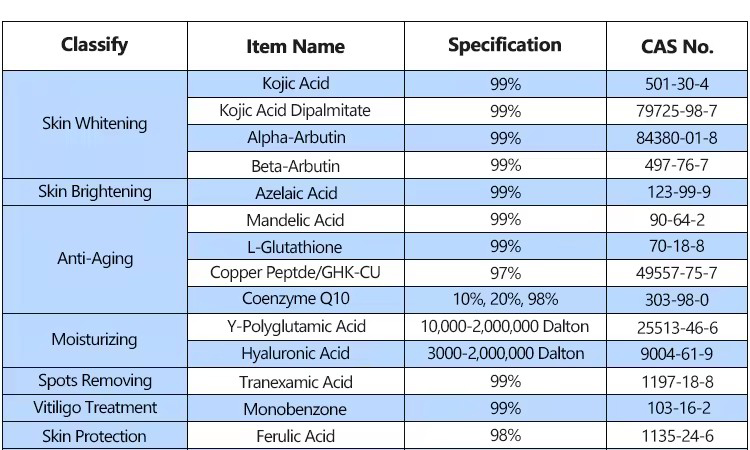Hydroxypinacolone Retinoate (HPR) is a derivative of retinoic acid, a compound known for its beneficial effects on skin health. Here’s an overview of its efficacy, potential side effects, and special precautions:
Efficacy:
Hydroxypinacolone Retinoate (HPR) is considered a promising skincare ingredient due to its ability to mimic the effects of retinoic acid without causing as much irritation. It’s often included in skincare products targeting anti-aging, acne, and overall skin rejuvenation.
Like retinoic acid, Hydroxypinacolone Retinoate (HPR) is believed to promote collagen production, improve skin texture, reduce the appearance of wrinkles, and even out skin tone.
Some studies suggest that Hydroxypinacolone Retinoate (HPR) may penetrate the skin more effectively than traditional retinoids, potentially leading to better results.

Side Effects:
While Hydroxypinacolone Retinoate (HPR) is generally well-tolerated by many individuals, some users may experience mild irritation, redness, or dryness, especially when starting a new skincare routine or using products with higher concentrations of Hydroxypinacolone Retinoate (HPR).
Compared to traditional retinoids, Hydroxypinacolone Retinoate (HPR) is believed to cause fewer side effects, such as flakiness and sensitivity. However, individual reactions can vary, and some people may still experience irritation.
It’s important to start with a low concentration of Hydroxypinacolone Retinoate (HPR) and gradually increase usage to minimize the risk of adverse reactions. Additionally, using moisturizers and sunscreen can help mitigate potential side effects.
Special Precautions:
Pregnant or breastfeeding individuals should consult with a healthcare professional before using skincare products containing Hydroxypinacolone Retinoate (HPR), as its safety during pregnancy and lactation hasn’t been extensively studied.

Like other retinoid-based products, Hydroxypinacolone Retinoate (HPR) can increase skin sensitivity to sunlight. Therefore, it’s crucial to use sunscreen daily and limit sun exposure, especially during peak hours.
Individuals with sensitive skin or conditions like eczema or rosacea may want to proceed with caution when using products containing Hydroxypinacolone Retinoate (HPR). Patch testing on a small area of skin before widespread use is advisable.
If you have any known allergies or sensitivities to skincare ingredients, check the product label carefully or consult with a dermatologist before using Hydroxypinacolone Retinoate (HPR)-containing products.
As with any skincare ingredient, it’s essential to introduce Hydroxypinacolone Retinoate (HPR) gradually into your routine and monitor how your skin responds. If you experience persistent irritation or discomfort, discontinue use and consult with a dermatologist for personalized advice.
